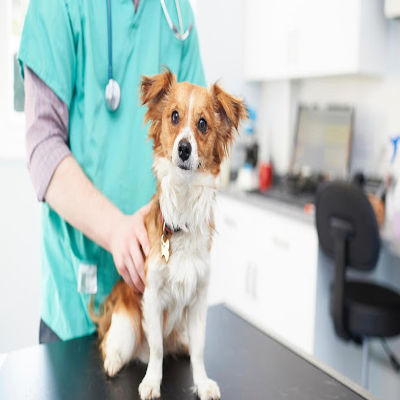
Harris, Hill and Gibbons Veterinary Group – Bradford on Avon
About Us
Pet wellbeing is our priority and it’s what unites our people, practices and services. It’s driven us to be a collection of local, individual veterinary services, delivered by some of the most passionate and talented people in the business.
Working together on the safe disposal of veterinary medicines
Did you know that the safest way to dispose of your pet’s unused flea and worm treatments, antibiotics and other medicines is to return them to your veterinary surgery?
If your pet’s veterinary medicines are disposed of incorrectly via wastewater e.g. down the sink, toilet or drain; this can contribute to environmental contamination. This is why we work hard to encourage pet owners to dispose safely of their pet’s unused medications.
What is cardiology?
Cardiology is the study of the heart and blood vessels. A cardiology assessment may be advised if changes are found on routine examination, such as a heart murmur or irregular rhythm, or because a pet is showing symptoms that may be caused by heart disease. Occasionally a cardiology assessment is recommended to confirm the heart is healthy prior to starting a medication, such as some types of chemotherapy.
Several methods are used to examine the heart, the most common being echocardiography (echo) which is an ultrasound scan of the heart. It allows direct assessment of the chambers and valves that make up the heart, as well as measurement of the contractility, blood flow and valve function.
Many vets can perform a basic echo for example, to determine whether an unwell patient is in heart failure, however investigation of complex cardiac disease is preferably performed by vets with a higher level of training. This may be a vet with a particular interest in cardiology, a vet who has undertaken a certificate in cardiology (often gaining Advanced Practitioner status), or a recognised specialist.
What happens during a cardiology assessment?
Usually, you will be asked to leave your pet at the practice for a period while the investigations are performed. Once the cardiologist has completed the diagnostic tests, they will be able to explain the changes in your pets’ heart, whether treatment is required, and advise you of the expected progression of any disease present.
An echo (heart scan) is performed with the animal awake or under light sedation. It requires some hair to be clipped from the chest but is not painful. Your pet will be asked to lie on a cushioned table in a dark room; it is not uncommon for pets to fall asleep during the scan!
Other tests that may be performed include:
Blood pressure measurement
Blood pressure is closely linked to the heart’s activity. Heart disease can cause low blood pressure, or abnormally high blood pressure if the body is compensating for changes. If untreated this can cause damage to other organs.
Electrocardiography (ECG)
An ECG is an electrical trace of the heart’s activity. It is recorded over a few minutes and shows any rhythm disturbances (arrhythmias). Some arrhythmias are audible as an irregular heartbeat; however, some are subtle and only identifiable on an ECG.
X-ray
If the heart is not pumping blood around the body effectively, fluid can build-up in or around the lungs. An x-ray is the best way to check this.
Blood tests
Blood tests are useful as a general screen of organ health and can identify underlying diseases or organ damage. Checking organ function may be recommended before starting some medications.
The vet will be able to explain which tests are required for your pet and why.




